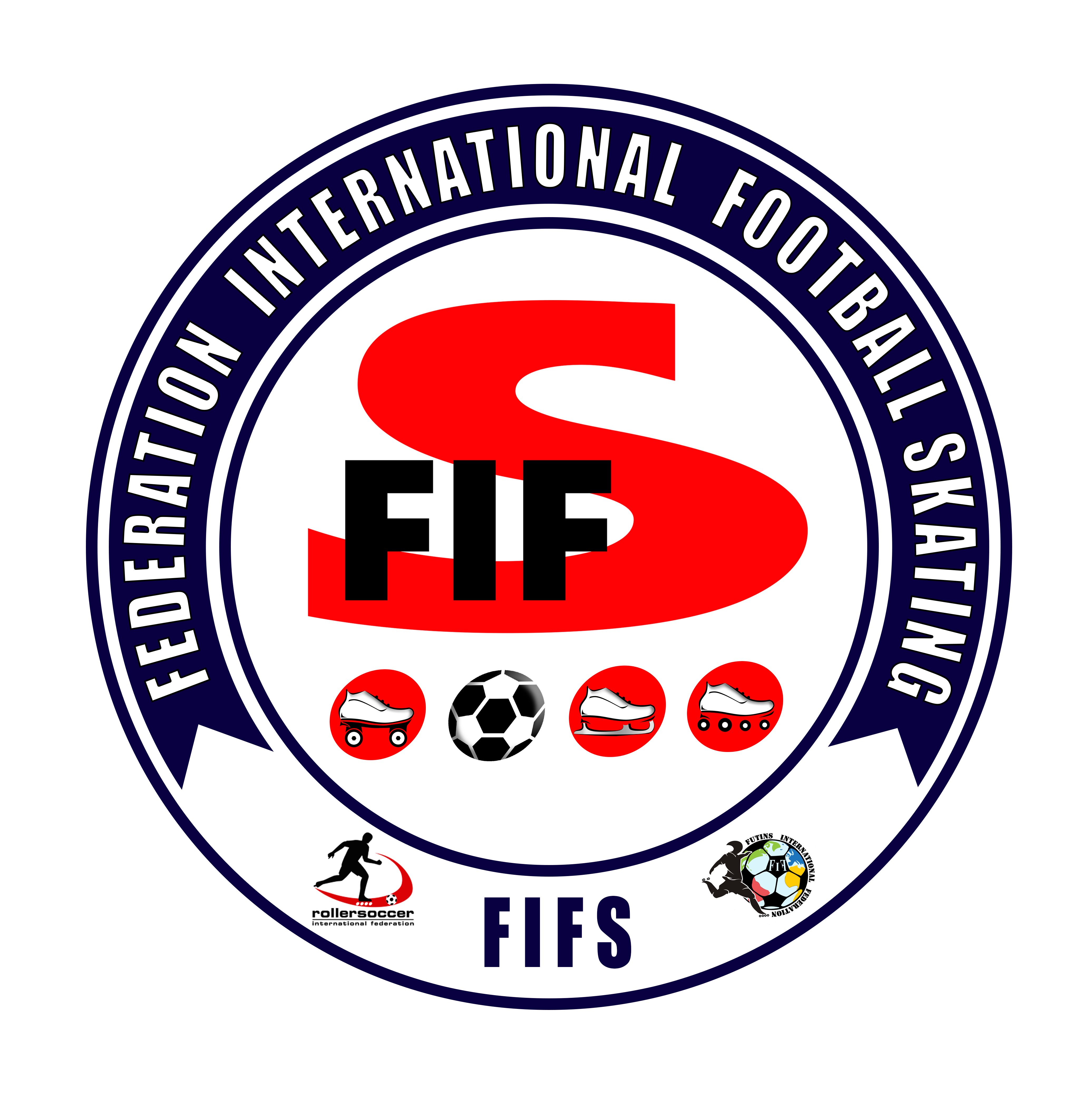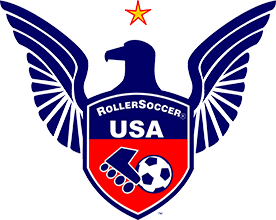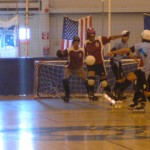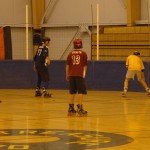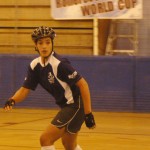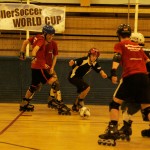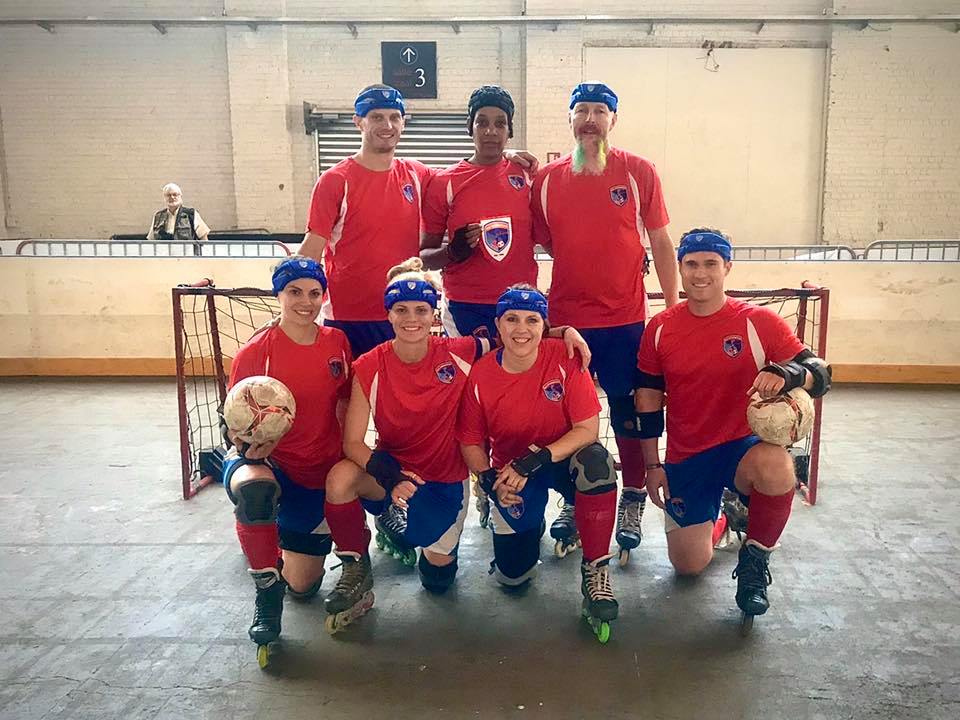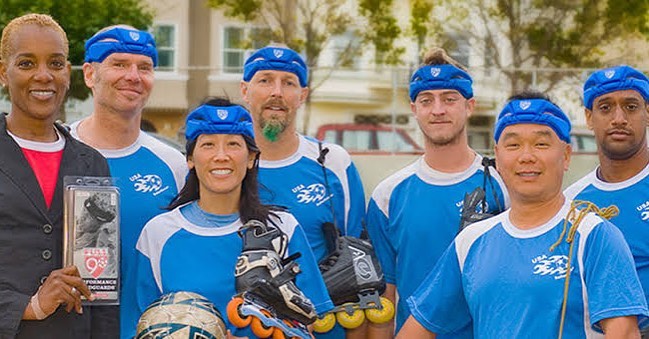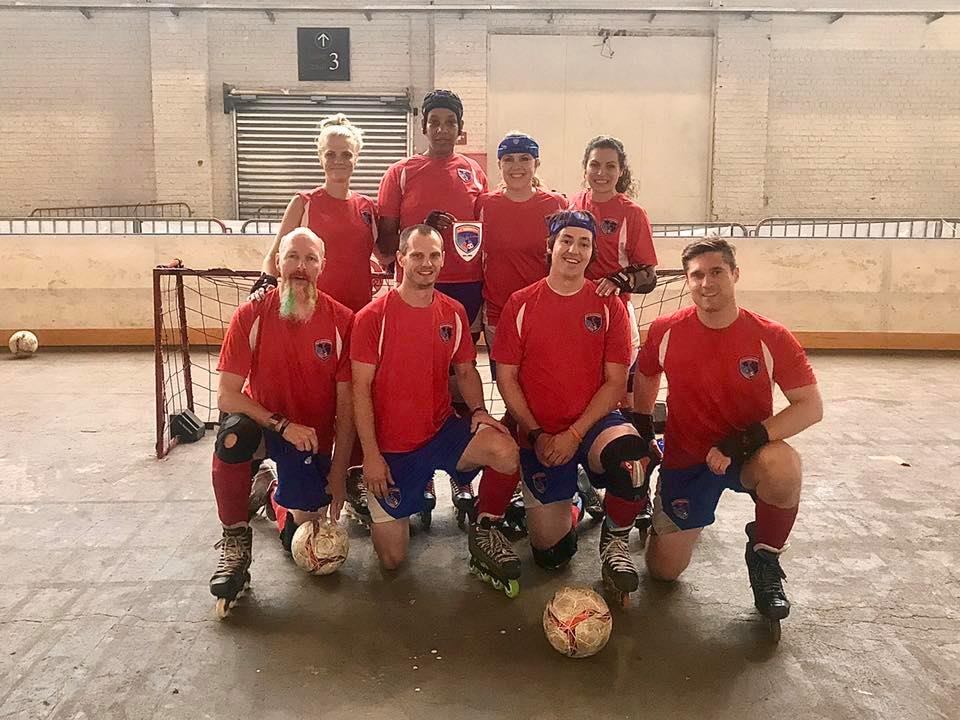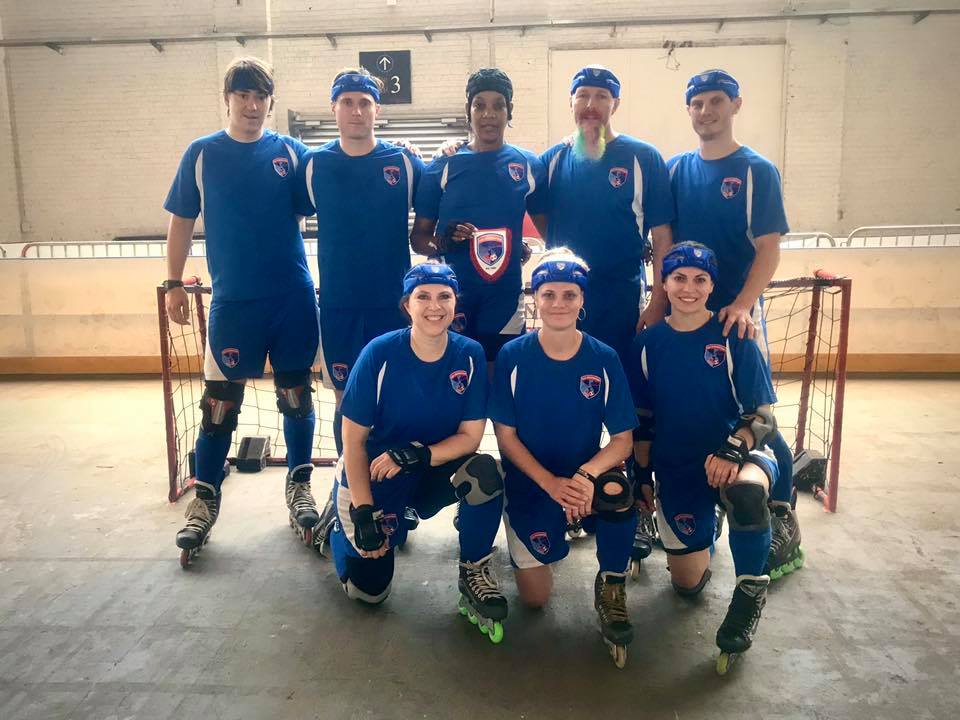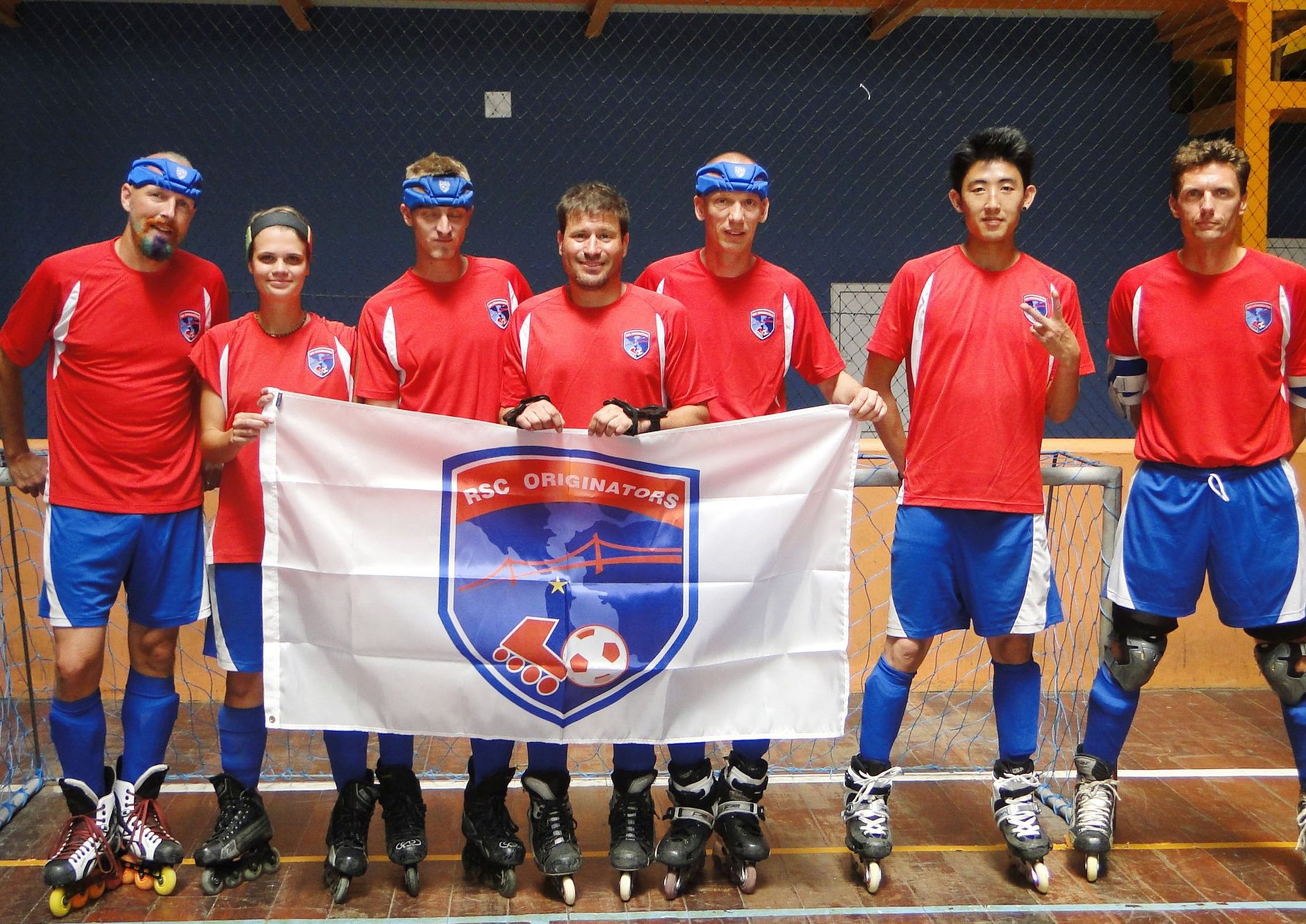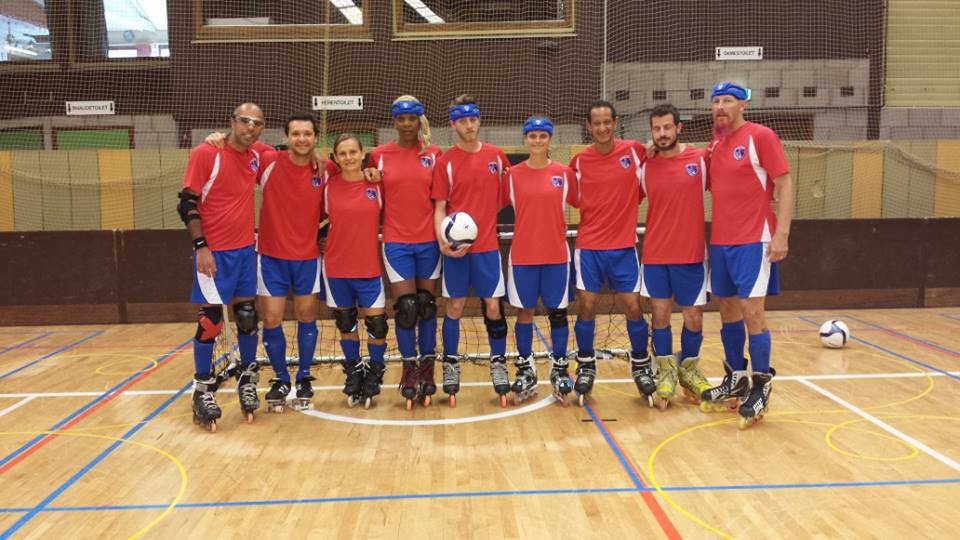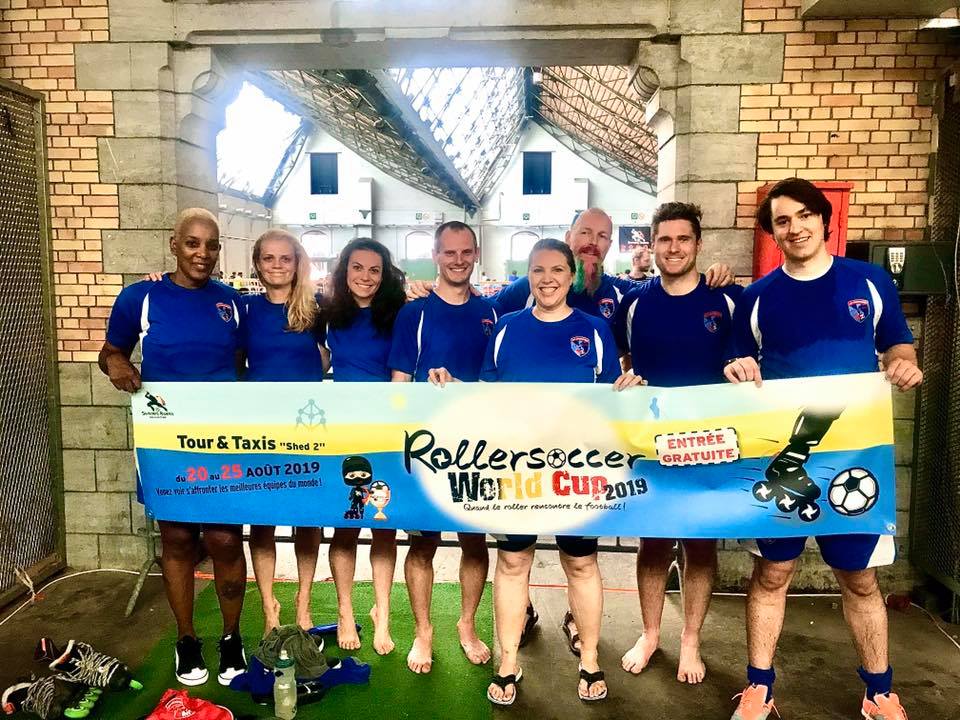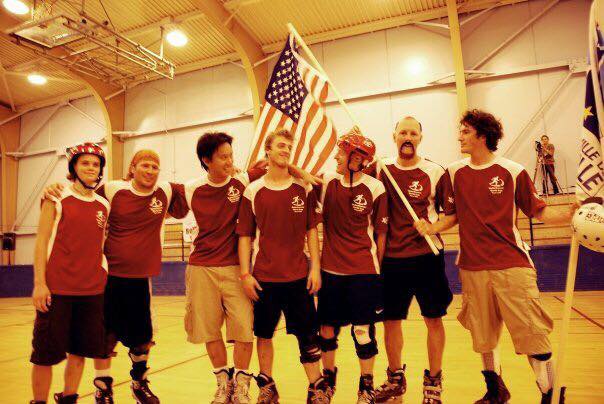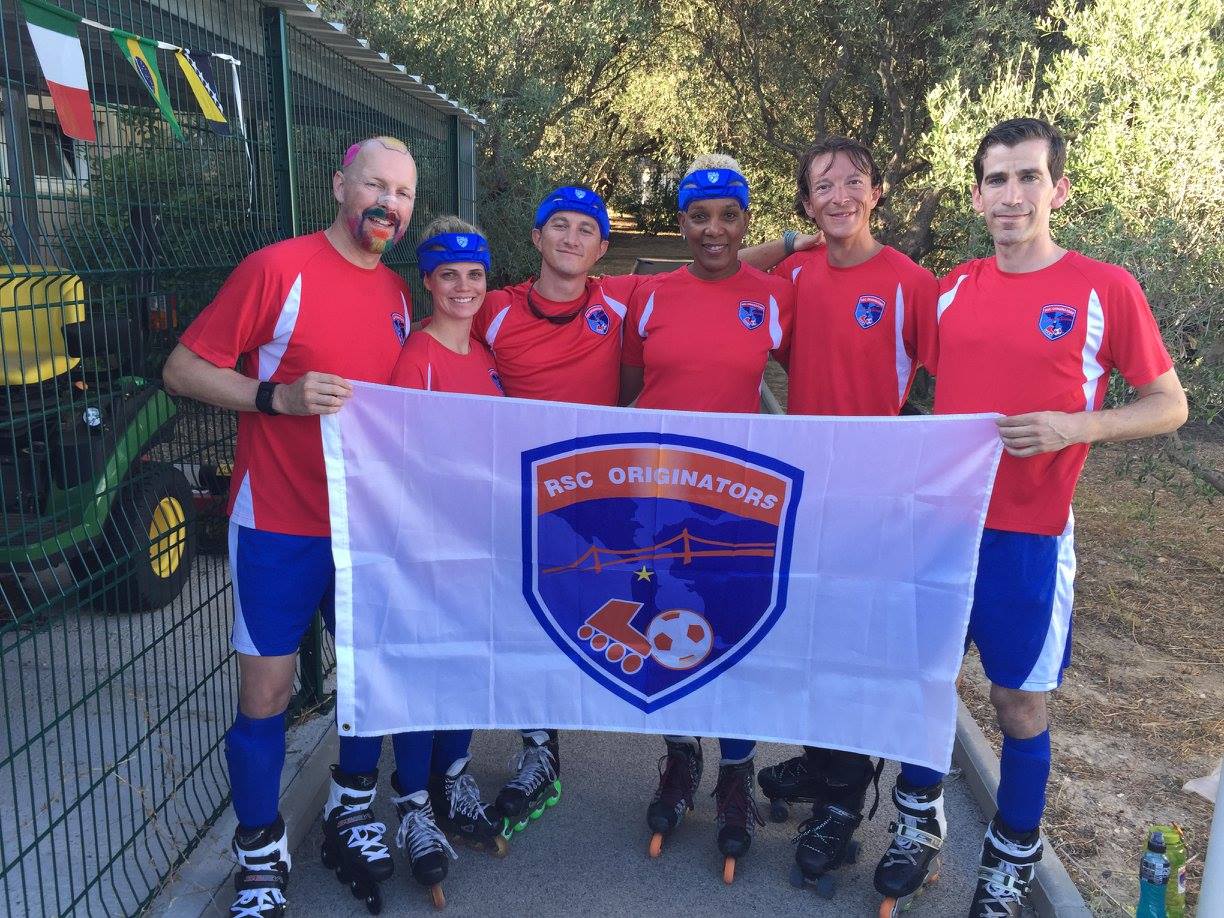1995
Established in
X
Champions
X
Current Players
X
Top Players
X
Certified Instructors
X
Certified Judges
HISTORY
San Francisco, California USA is the birthplace of Modern RollerSoccer
On December 17, 1995, Zack Phillips kicked a stray soccer ball while skating through San Francisco’s Golden Gate Park. It was such a kick that Zack, an avid inline skater with limited soccer experience, envisioned a new sport. He immediately got his own soccer ball and tested the idea on his skating friends, with whom he sometimes played impromptu games known as “kick-the-cone” (i.e. kicking a pine cone while skating). Soon, they too realized that roller-soccer had more to offer than roller-pinecone. Two weeks later, on December 31, Zack and a few friends marked off a playing area on John F. Kennedy Drive in GGP and began the first match of soccer on skates. The near-chaos of 23 enthusiastic men and women skaters chasing a soccer ball was quite a spectacle. The new sport, RollerSoccer was born.
During 1996, kicking and rolling grew in popularity, and rules were created. By the end of 1996 Zack founded the RollerSoccer International Federation (RSIF); introduced the sport to Hong Kong, Taiwan, New York, Atlanta, Miami, and Los Angeles; organized twice-weekly outdoor matches and several indoor matches in San Francisco; and created his now famous soccer ball hairstyle, which he has continuously maintained since September 1996. 1997 brought local, national, and international publicity to the sport as RollerSoccer leagues began in San Francisco. In addition, RollerSoccer exhibitions were held eight U.S. cities; and seven European countries including Italy, Spain, and the Netherlands.
The most notable exhibition was conducted at the National Sporting Goods Association (NSGA) trade show in Chicago with top X Games inline skaters such as Matt Salerno giving it a kick. International publicity exploded in 1998 as exhibitions were held in ten U.S. cities, five South American countries including Brazil, and seven European countries including England, Germany, and France. Notable exhibitions were held in Paris during the World Cup, in Munich at the ISPO sporting goods trade show, and at the MLS Cup Soccer Celebration with international soccer icon Alexi Lalas donning skates and scoring three goals.
In 1999 the RSIF focused on the US market by sponsoring the Diversity Tour, a nationwide skate festival spanning 25 cities, jointly produced by the Aggressive Skaters Association (ASA) and the godfather of aggressive skating, Chris Edwards. RollerSoccer skills challenges were conducted at each tour event, a tournament was held in San Francisco during the X Games, and clinics were held at the debut of the Gravity Games in Providence, RI. By year-end, several of the world’s top professional inline skaters including Chris Edwards, Matt Salerno, and Katie Brown had successfully tried their feet at RollerSoccer.
During the early 2000s, the RSIF continued global promotion and development of the sport. In 2004, the first RollerSoccer World Cup (RSWC) was held in London England, and in 2008 the most recent RSWC was held in San Francisco, California, where a U.S. team won the World Cup. The year 2009 brought the first RollerSoccer Club World Cup (RSCWC) in Brussels, Belgium. Later RSCWC’s have been to France, Italy, Netherlands, and Brazil. New national and international locations are planned for future tournaments.
RollerSoccer is a sport that embodies skill and finesse, rather than size and strength; therefore gender does not play a major role. When Zack started the sport male and female participants played together. RollerSoccer is sometimes perceived to be a dangerous game; however, injury statistics prove otherwise. While serious injuries can occur in sports, the game of RollerSoccer has evolved with an emphasis placed on safety, and the rate of injury is relatively low. Ensuring the safety of participants is a major focus for RollerSoccer USA which makes recommendations to make the game as safe as possible.
Putting soccer on wheels creates a fast-paced, high-scoring, team sport. Most participants have prior inline or roller skating experience; however, the fan base is much more diverse and includes supporters of the beautiful game (soccer), action sports, and, of course, skating.
